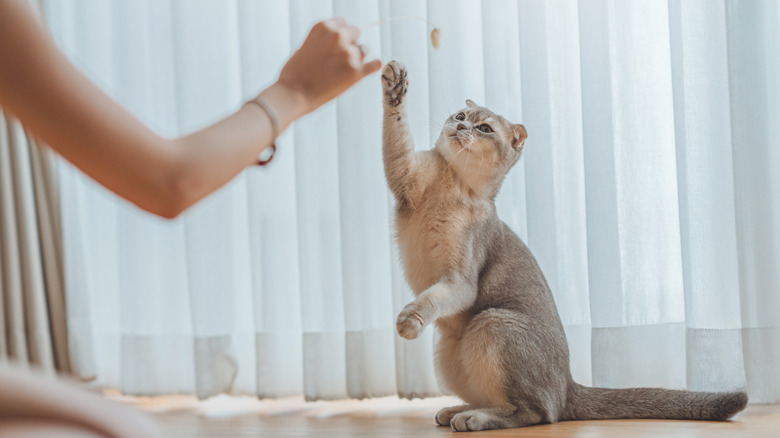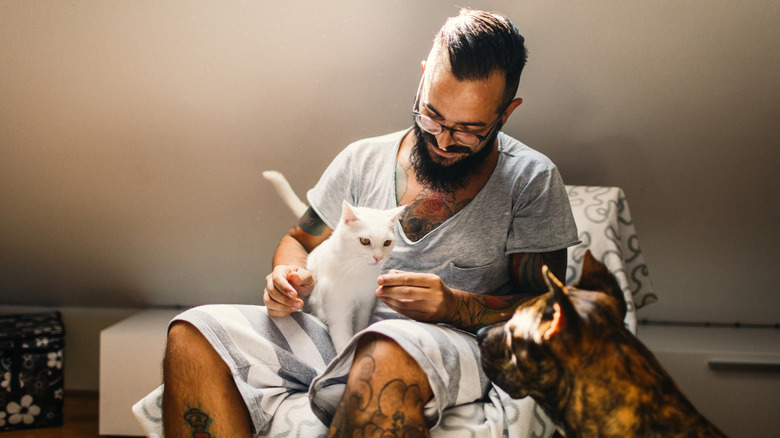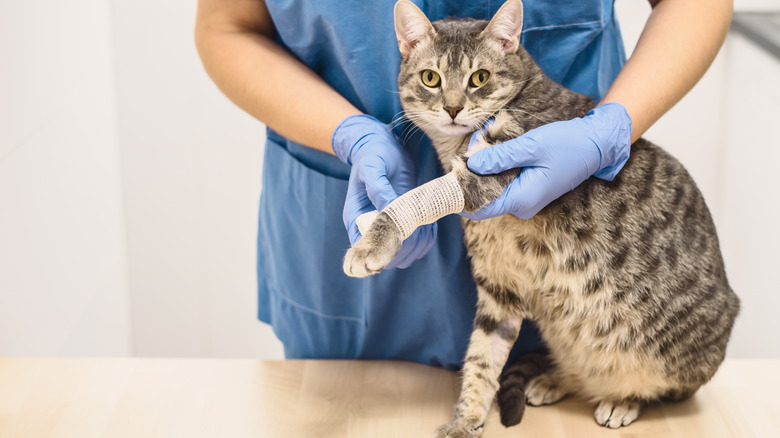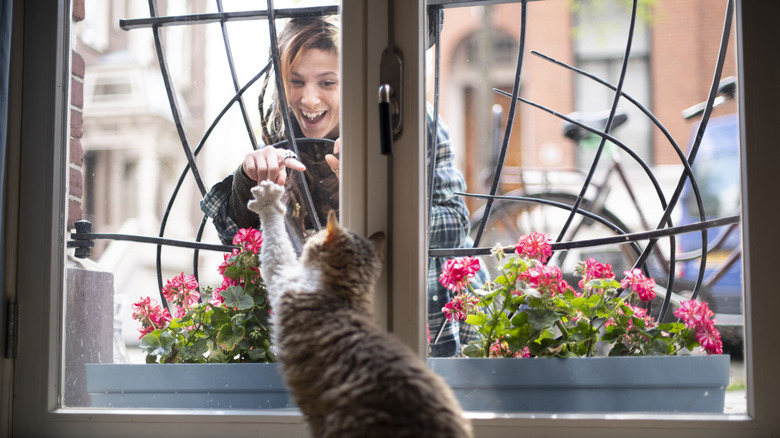Questions You Should Ask Every Cat Sitter Before Hiring One
If Ant-Man's Pym Particles actually existed, we'd be shrinking our cats to take them with us when we travel, but in the real world, we have to board them or find a sitter when we can't bring them on our trips. Choosing the right sitter can be challenging, unless you have a friend or relative to watch your feline friend. With so many horror stories of pets being harmed by sitters, it's natural to be leery about choosing a stranger to watch your cat. To help you make the best decision, it's important to ask certain questions of your prospective pet sitters.
Naturally, you want to ask if they have any special training that makes them a particularly great sitter, as well as if they have any kind of insurance. These questions should also include details about their experience, their own pets, and their comfort level with pet emergencies. Of course, the last thing you want is to have to come home and discover that something didn't go as planned involving your furry friend. Asking the right questions and getting the right answers can give you peace of mind while you're away. And if all goes well, you can hire the same sitter again next time without having to ask someone else the same questions.
What is your experience with cats?
People who advertise their pet-sitting services typically have some experience with looking after cats, but you shouldn't assume they all do. After all, there's a first time for everything, so you might encounter a sitter who's never cared for a stranger's cat before. On the other side of the spectrum are those with extensive experience: long-time cat parents and seasoned sitters who've looked after dozens of cats.
The question to ask yourself is if you have a preference. Cats are generally low-maintenance pets, so you might be comfortable hiring a sitter with minimal feline experience. Or, you might prefer someone who understands cat quirks and behaviors, like kneading, sleeping in boxes, and experiencing random zoomies. Your sitter should know, for example, that cats love having their heads scratched and chasing laser toys.
Most sitters include some details about their experience on their online profile, business card, or both, but it doesn't hurt to ask for specifics. Don't be afraid to ask follow-up questions, either. For example, if a sitter says they've had many pleasant cat-sitting experiences, ask what made them pleasant. If you're browsing sitters on a pet-sitting site, see if they have reviews from other clients. The more information you can gather, the better.
How would you handle an emergency involving my cat?
Some cats, especially kittens, are naturally more active, curious, or rambunctious than others. They crawl into spaces they shouldn't without being noticed, creating an unplanned game of hide-and-seek, or, worse, they injure themselves from a fall or sharp object. Items like window blinds or blind cords can also pose risks for a playful cat, including entanglement and strangulation.
Ask the sitters what they would feel confident doing in an emergency situation, should your cat need immediate attention for something. Removing a cat from harm is one thing, but what if the situation requires first aid or urgent veterinary care? Let the sitter know your preferences and expectations, and ask them to share their comfort level. They might not feel equipped enough to deal with a wounded cat or be willing (or able) to take a trip to the nearest emergency vet.
Or, you might get lucky and find a sitter who's dealt with a crisis involving a pet before. Maybe they administered first aid or made the quick decision to head to the vet after a food-poisoning incident involving a cat. A sitter with that background likely has a little more composure and emotional maturity to handle high-stress pet situations than one without it.
Do you have a backup cat sitter?
Pets aren't the only ones that can find themselves in a mishap while their owners are out of town. Sitters can, too. Whether it's a car accident, an urgent incident involving a family member, or some other unforeseen medical circumstance, emergencies happen — and often at the most inconvenient times, like right when a cat sitter is scheduled to take care of someone's pet. Unless you already have a backup plan in place, ask your prospective sitter if they have one.
Some pet-sitting services offer a system for finding backup sitters in the event the original sitter is unable to keep their commitment. If you found the sitter on a pet-sitting site, research the company's policy to determine if it has an emergency backup policy like this. If you don't see one or you're considering hiring an independent sitter who isn't affiliated with a service like Rover or Wag!, they might not have a plan B.
A sitter's lack of an alternate plan doesn't necessarily have to be a deal-breaker for someone searching for pet care. It just means you might want to secure your own backup person. Be sure to also leave a spare house key in a hidden but easily accessible spot for them to find if needed. It's also wise to leave out plenty of water, perhaps in two big bowls, in case no one is able to check on your cat before you return.



